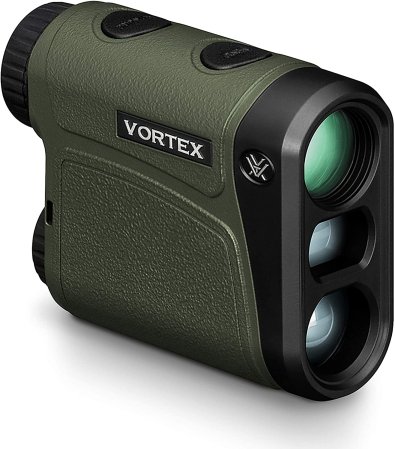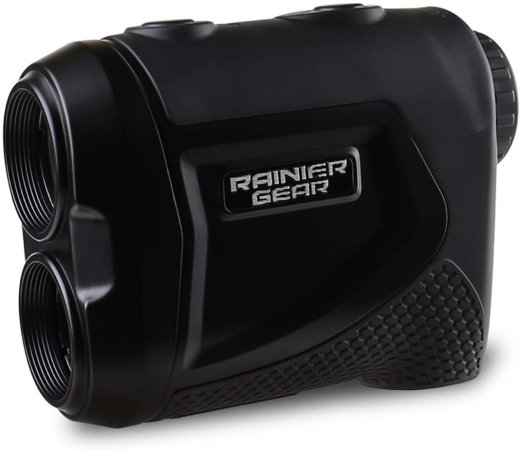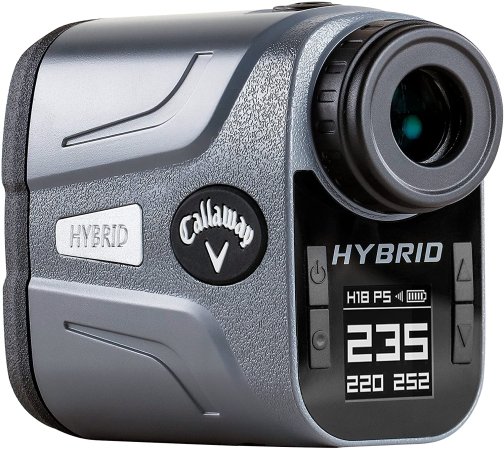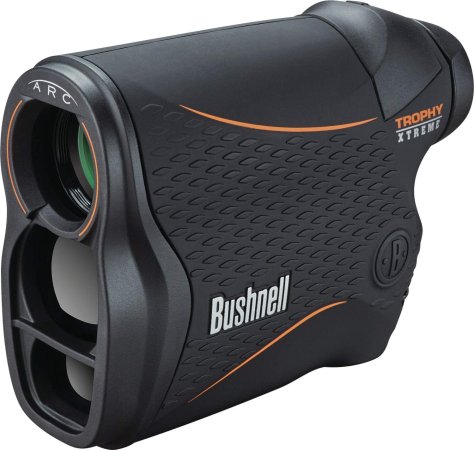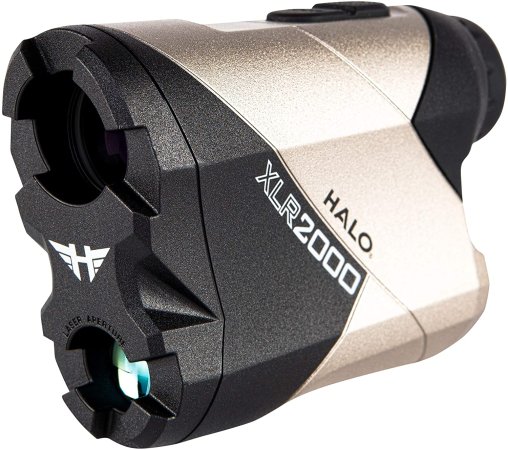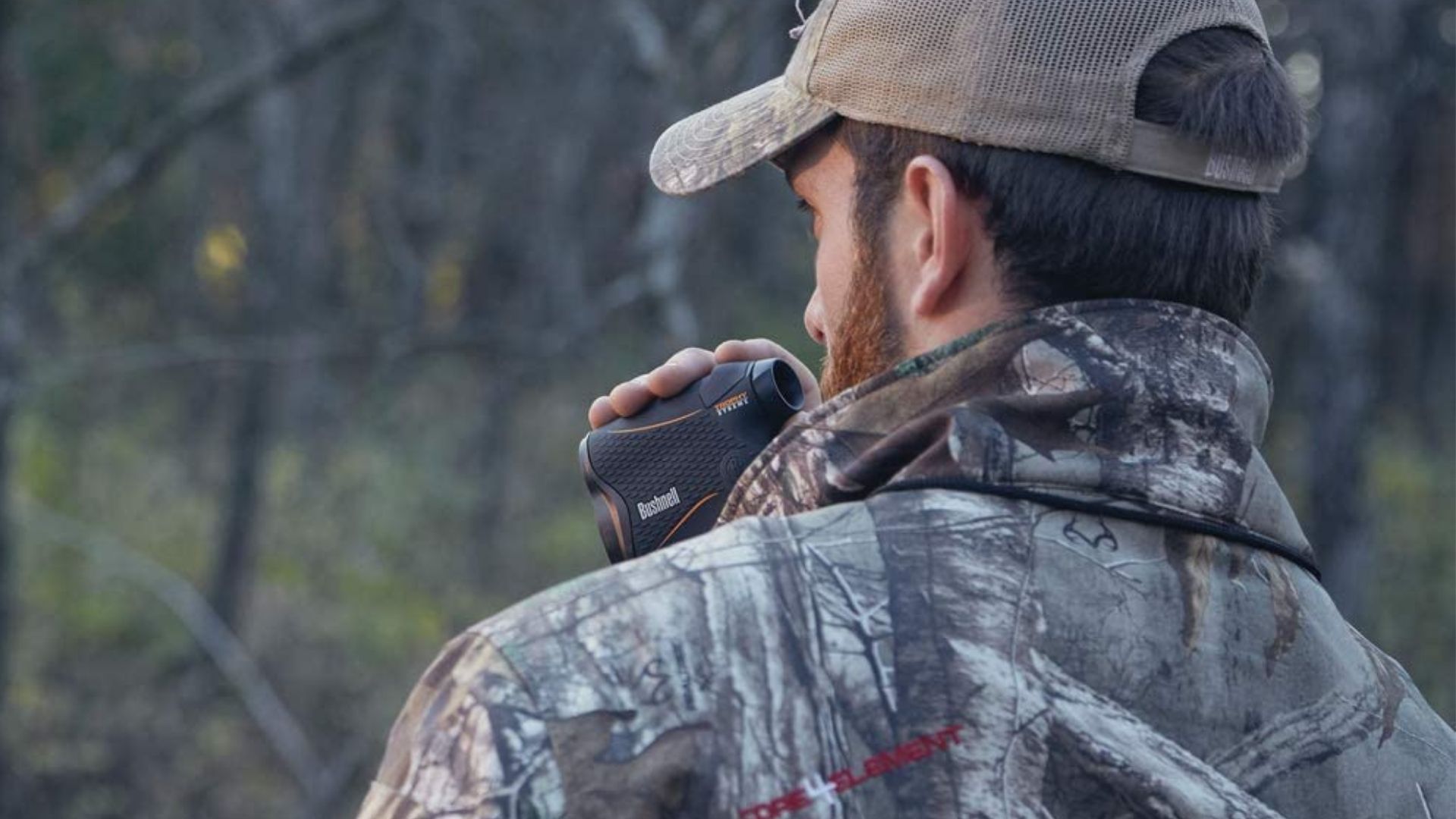

We may earn revenue from the products available on this page and participate in affiliate programs.
No one is questioning your ability to estimate range by referencing your ACSS reticle or imagining how many football fields could fit between you and the target, but we might suggest that a rangefinder could improve your shooting. Hunting and recreational shooting require you to account for things like wind, humidity, and temperature — not to mention the type and consistency of ammunition you’re using. Maintaining thorough notes for data on previous engagements is important, and you can make those notes a lot more accurate by using actual ranges rather than estimated ones.
Even NASA engineers use calculators, and you should take advantage of available technology, too. A proper rangefinder can take your shot placement from accurate to dead-on balls accurate (it’s an industry term) in the blink of an eye.
Vortex Optics Impact laser rangefinder
Rainier Gear laser rangefinder
Callaway laser-GPS rangefinder
Bushnell Trophy Xtreme laser rangefinder
Halo Optics XR2000
Related: Grab one of these 6 range bags before your next trip to the firing line
Types of rangefinders
- Laser: Rangefinders used for hunting and other shooting sports use lasers to accurately determine the distance between the shooter and the target. Laser rangefinders are compact, durable, accurate over long distances, and easy to use. Just place the optical sight on your target, employ the laser, and get an accurate reading instantly. Many options even identify the change in elevation to help you compensate for bullet drop more accurately.
- Ultrasonic: Ultrasonic rangefinders operate like laser rangefinders, but with sound instead of light. This makes them less desirable since they’re susceptible to interference from sounds as quiet as wind noise and chirping birds. This older technology still has a place, but that place is not in your range bag. Step up to a modern laser rangefinder for the best results.
- Optical: Optical rangefinders use multiple planes of glass to create two separate images that align perfectly when a dial reaches the correct range reading. These can certainly be accurate, but they require practice and skill to use correctly. This type of rangefinder is great for surveyors, but they don’t belong on the firing line. Resist the urge to go battery-free and leave these on the construction site.
- Sport-specific: Rangefinders are primarily used by hunters and golfers. Both disciplines require accurate distance readings, but there are a few differences. Some golfing rangefinders use GPS to measure the distance from a known hole with extreme accuracy. Hunting rangefinders prioritize durability and camouflage and may work at greater distances since your rifle can obviously reach further than your driver.
Key features of rangefinders
- Accuracy: The whole point of using a rangefinder is improving your accuracy. Bullet drop is slightly greater at 300 yards than 200 yards; and far greater at 1,000 yards than 900 yards. By checking your distance from the target with a laser rangefinder, you’ll know exactly how to adjust your aim for better shot placement on the first try.
- Angle detection: As distance increases, the impact of elevation change on bullet trajectory becomes more significant. There is a difference between shooting 500 yards on a flat known-distance range, 500 yards into a valley, and 500 yards up an incline. Real-world situations like big-game hunting require you to account for these changes, and a well-equipped rangefinder can help you make those adjustments.
- Magnification: If your target is far enough to warrant a rangefinder, it’s probably far enough that you want some kind of magnification. Hunting rangefinders use varying amounts of magnification to help you see your target and accurately place the laser for a true reading. Without this feature, it can be nearly impossible to obtain a usable reading on what appears to be a tiny point in the distance.
- Durability: Rangefinders used in shooting sports need to be tough. At the very least, the one you choose is going to get jostled around in your range bag. If you hunt, your rangefinder will need to be carried through rough terrain in all kinds of inclement weather. Don’t settle for a cheap rangefinder only to find the lens fogged up and the electronics glitchy when you need it most.
Benefits of rangefinders
- Accuracy: Accounting for bullet drop over distance is basic marksmanship. Dial in accurate range measurements instead of guessing or using a reticle that shows distances in 100-yard increments. If you ever do need to estimate, you’ll do a much better job if you’ve checked yourself countless times with a laser rangefinder.
- Speed: Laser rangefinders provide accurate readings almost instantly. That leaves more time for actually preparing for your shot by eliminating time spent trying to use distant objects and terrain features to estimate distances by eye.
- Sportsmanship: Improving accuracy at the range results in better competition scores and bragging points among your friends. In hunting, it can mean the difference between a humane harvest and a questionable shot you probably shouldn’t take in the first place.
Rangefinder pricing
Budget rangefinders that cost less than $100 provide basic features and fairly accurate readings in good conditions. These options are fine for casual plinking at short distances. Rangefinders in the range of $100 to $200 offer great value and are serviceable options for hunting and distance shooting at the range. For more than $200, premium rangefinders offer advanced features, top-tier build quality, and quick responses for ideal results. If you do a lot of hunting or distance shooting, one of these will pay itself off in no time.
